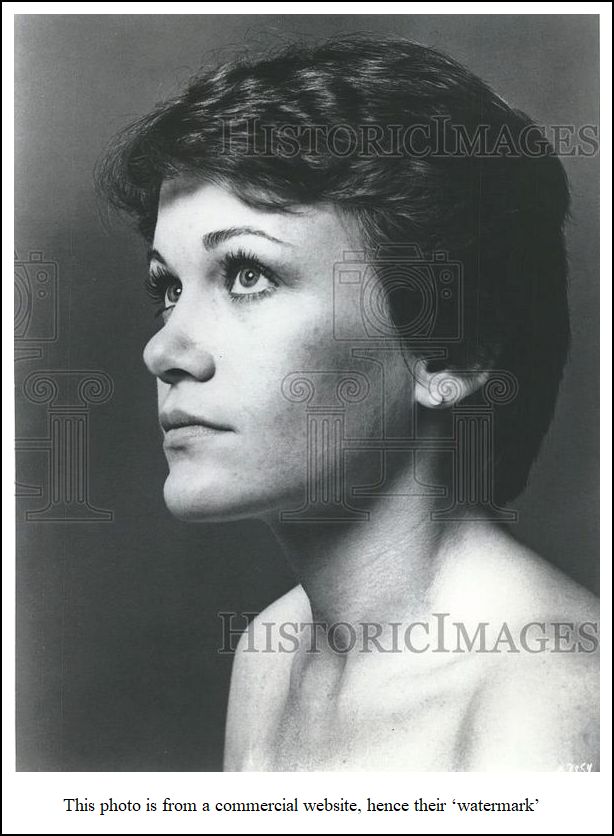

| A winner of the Metropolitan Opera National
Council Auditions, Sunny Joy Langton has enjoyed an international career.
Her other honors include a National Opera Institute Career Grant, and
Rockefeller Foundation and Affiliate Artists Grants. Langton has performed with the Lyric Opera of Chicago and the Cologne, Düsseldorf, Hamburg, Monte Carlo, Spoleto, Santa Fe, Miami, St. Louis, New Orleans, and San Diego Operas. Her solo engagements include concerts with the Rotterdam and Oslo Philharmonics, the Concertgebouw Orchestra, and German and Dutch radio orchestras. Langton has made more than 100 appearances on PBS television and National Public Radio, and can be heard on the Koch International Records label. Her husband, bass Bruce Hall, has appeared with her in performance and on recordings (as shown below). |
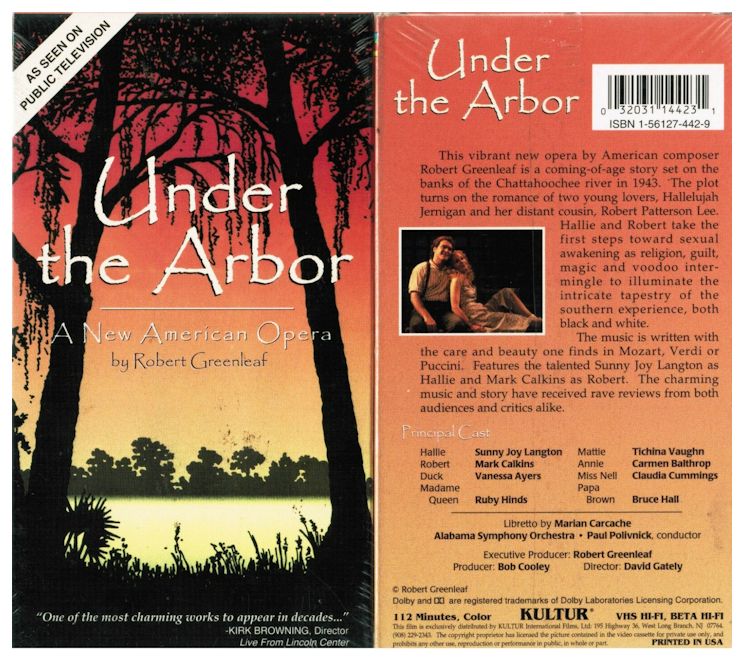
| The expression ‘longhair music’ dates from LONG before
rock music was even close to being a thing. It references particularly
guys like Franz Liszt and Paganini, who were portrayed wearing their
hair long. In the 1920s the term came to be applied to people who were
generally intellectuals and aesthetes, like classical music enthusiasts,
who didn’t have to conform to society’s views of hair length on men.
[One of many responses to the question found
on the internet.]
|
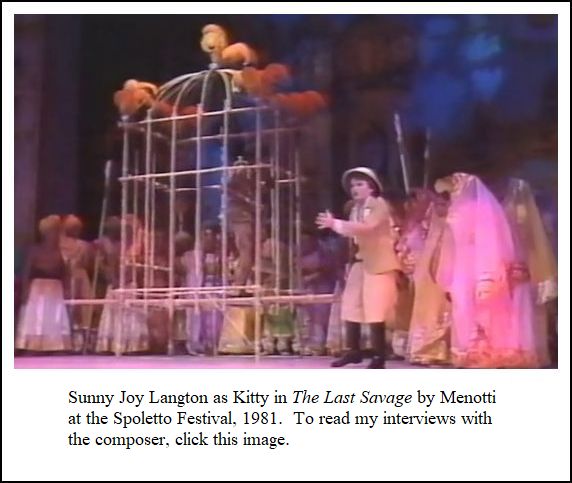
Sunny Joy Langton at Lyric Opera of Chicago
1981 Ariadne auf Naxos (Naiad) - with Meier/Rysanek, Johns, Welting, Schmidt/Minton, Nolen, Sharon Graham, Harman-Gulick, Negrini, Gordon; Janowski, Neugebauer, Messel, Schuler 1982 [Spring] Die Fledermaus (Adele) - with Brown, DiPaolo, André Jobin, Nolen, Malas; Schaenen, Mansouri, O'Hearn, Tallchief 1984 Arabella (Fiakermilli) - with TeKanawa, Wixell, Daniels, Dunn, Kraft, Greer, Kunde, Korn; Pritchard, Decker 1985-86 La Rondine (Lisette) - with Cotrubas, Kunde, Redmon, Stone, Doss, Kaasch; Bartoletti, Chazalettes, Santicchi 1987-88 L'italiana in Algeri (Elvira) - with Baltsa, Blake, Alaimo, Nolen, Sharon Graham; Ferro, Ponnelle 1995-96 Ghosts of Versailles [Corigliano] (Florestine) - with McNair, Greenawald, Hagegård, Croft, Wendy White, Clark, Della Jones; Slatkin, Graham, Conklin, Schuler, Tallchief, Dufford 1996-97 Un Re in Ascolto [Berio] (Soprano II) - with Lafont, Woods, Harries, Desderi, Begley; D.R. Davies, Vick, Dyer == Names which are links in this box and below
refer to my interviews elsewhere on my website.
|
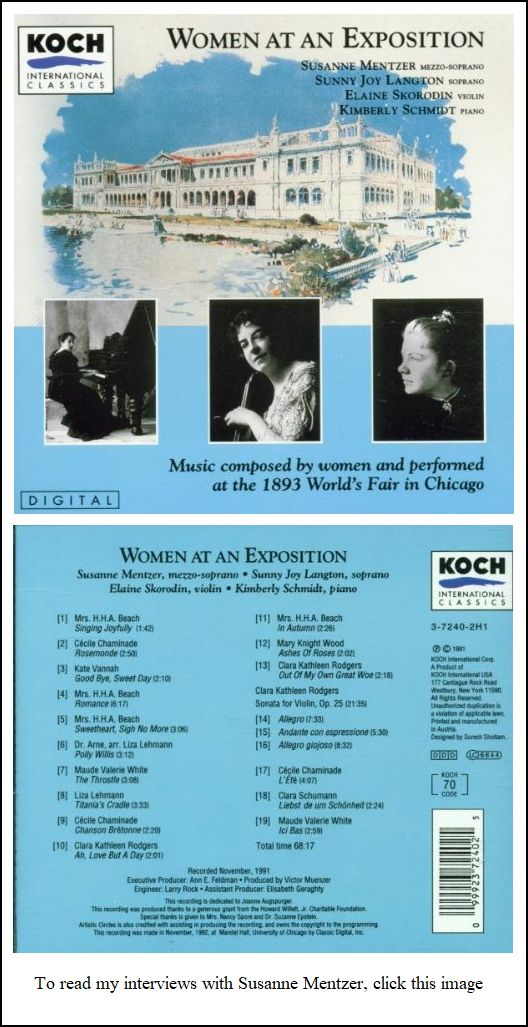
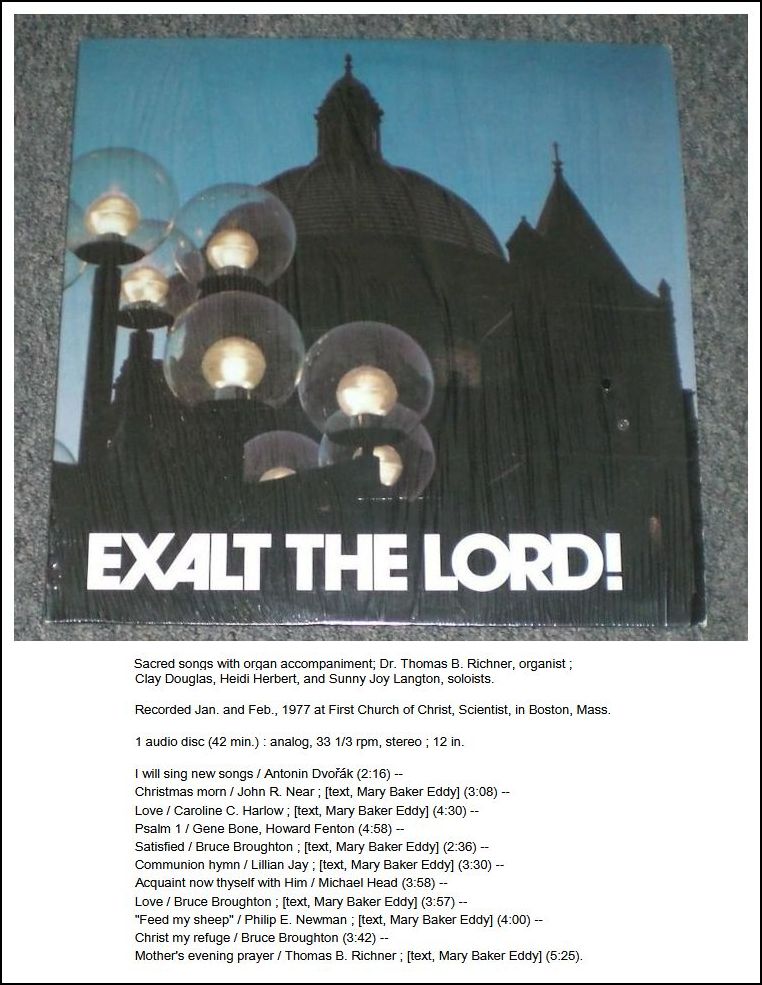
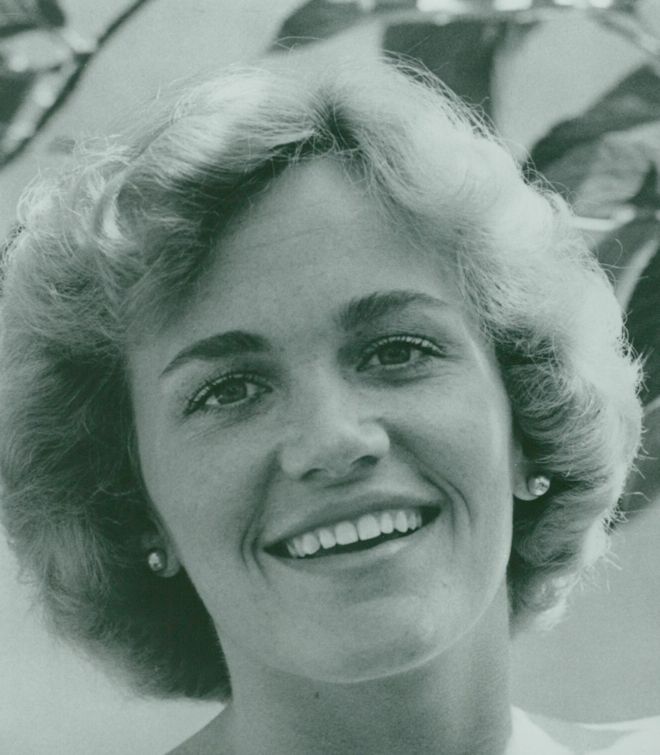 BD: She was just an artist.
BD: She was just an artist.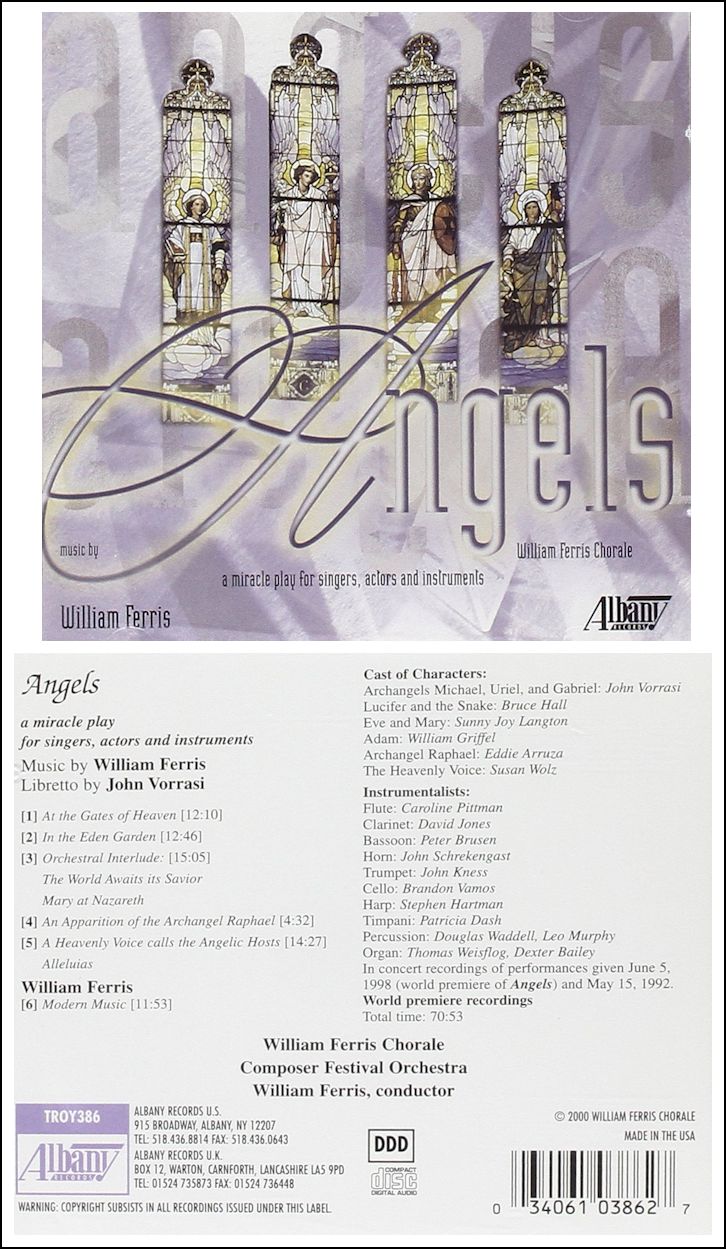
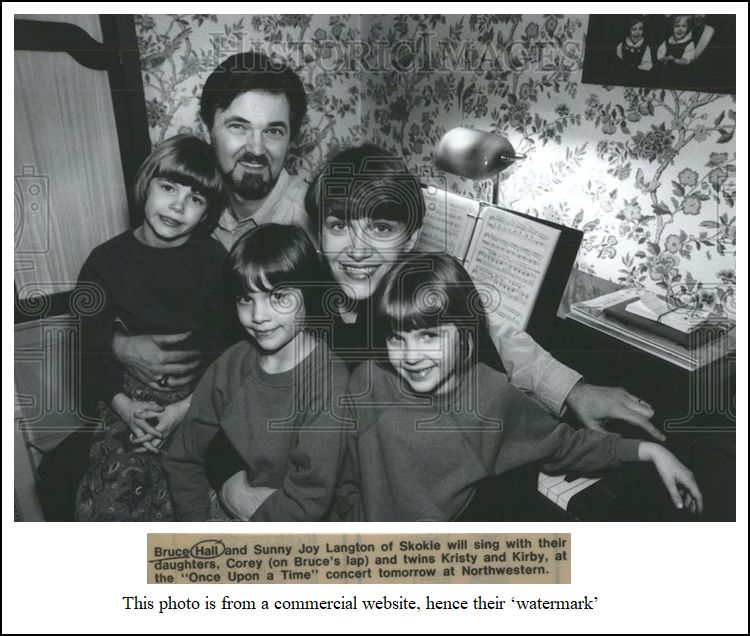
© 1987 Bruce Duffie
This conversation was recorded in Chicago on October 30, 1987. Portions were broadcast on WNIB in 2000. This transcription was made in 2022, and posted on this website at that time. My thanks to British soprano Una Barry for her help in preparing this website presentation.
To see a full list (with links) of interviews which have been transcribed and posted on this website, click here. To read my thoughts on editing these interviews for print, as well as a few other interesting observations, click here.
Award - winning broadcaster Bruce Duffie was with WNIB, Classical 97 in Chicago from 1975 until its final moment as a classical station in February of 2001. His interviews have also appeared in various magazines and journals since 1980, and he now continues his broadcast series on WNUR-FM, as well as on Contemporary Classical Internet Radio.
You are invited to visit his website for more information about his work, including selected transcripts of other interviews, plus a full list of his guests. He would also like to call your attention to the photos and information about his grandfather, who was a pioneer in the automotive field more than a century ago. You may also send him E-Mail with comments, questions and suggestions.